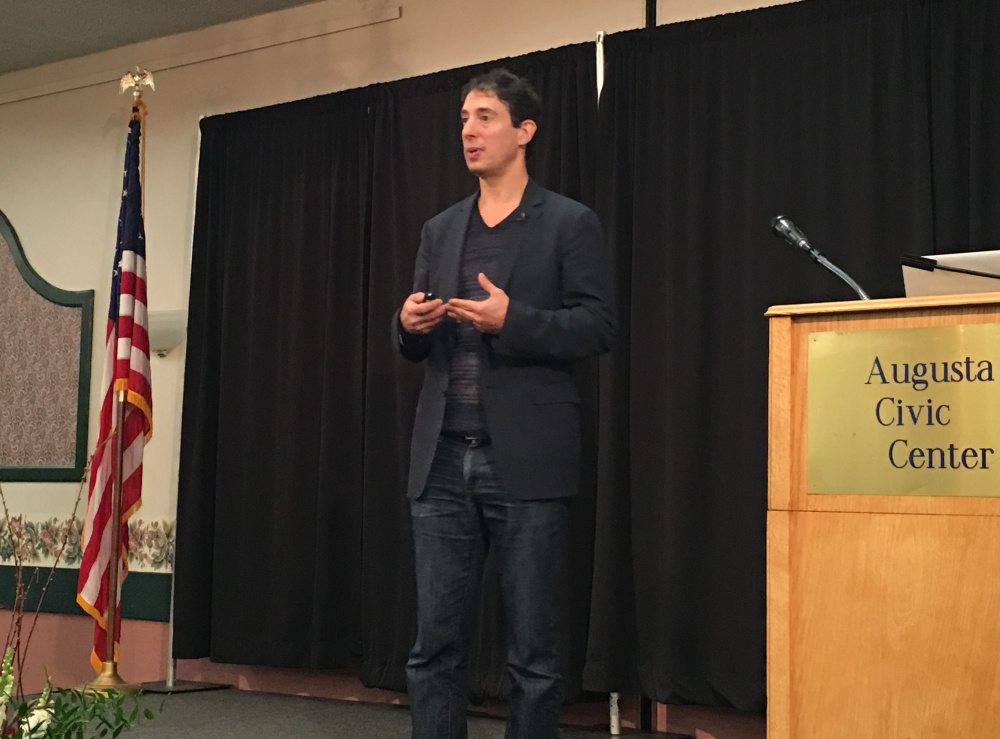With Maine’s elderly population on the rise and many older residents living alone, state officials must plan how to provide services to those people, a sociologist said Wednesday.
“Widows and widowers say that they feel like it is a loss of their integrity and dignity if they cannot live alone,” said Eric Klinenberg, an author, sociologist and professor at New York University. Klinenberg gave the keynote address at the annual convention of the Maine Municipal Association at the Augusta Civic Center.
Most adults living alone are ages 35 to 64 and tend to be found in major metropolitan areas, including New York, Washington, D.C., and Boston, Klinenberg said. Research shows that only about one-third of Americans who live alone are over 65, but because Americans are living longer, the number of people who grow old alone will become more of an issue, Klinenberg said.
In Maine, an estimated 80,000 people over the age of 60 live alone. Klinenberg said that in a state known for its harsh winters, it is important for city officials to provide services to residents who might not be able to take care of themselves.
“Cities can target services for extreme events, but more importantly, cities need to be targeting services to them all the time,” Klinenberg said. “It is just not during a (storm) that we need to be worried about elderly people who are frail and living alone.”
Klinenberg said he first became interested in studying the nationwide rise in living alone while writing a book about a 1995 heat wave in Chicago that killed more than 730 people over five days. Most of the victims were poor elderly residents, many of whom lived alone and were not discovered until hours or days after their deaths.
He said civic leaders need to ask whether their residents can afford to pay their heating bills, have companionship and have health care available to them.
Augusta Mayor David Rollins said that while most of his city’s population is not under the “single, living alone” umbrella, much still can be done in Augusta and statewide to help.
“One of the biggest developmental initiatives underway in the last few years is elderly housing,” Rollins said. “We have converted an old high school to elderly housing and are about to convert an old middle school to elderly housing. We see the demand is large now and will be increasing.”
Klinenberg said that living alone, which used to have a stigma attached to it, has become a surprising social experience.
“We are home and alone and engaged in social life,” he said. “Research shows that people aren’t substituting social media for a social life. Rather, they are using it as a supplement.”
Send questions/comments to the editors.



Success. Please wait for the page to reload. If the page does not reload within 5 seconds, please refresh the page.
Enter your email and password to access comments.
Hi, to comment on stories you must . This profile is in addition to your subscription and website login.
Already have a commenting profile? .
Invalid username/password.
Please check your email to confirm and complete your registration.
Only subscribers are eligible to post comments. Please subscribe or login first for digital access. Here’s why.
Use the form below to reset your password. When you've submitted your account email, we will send an email with a reset code.